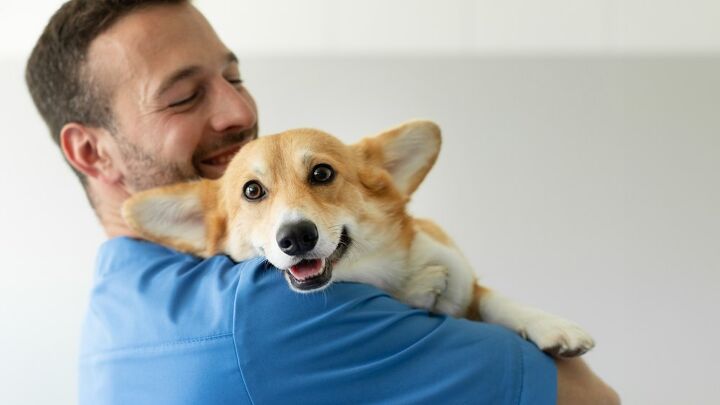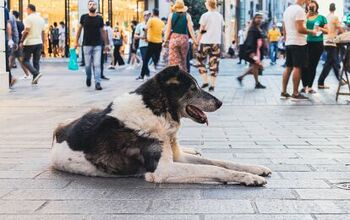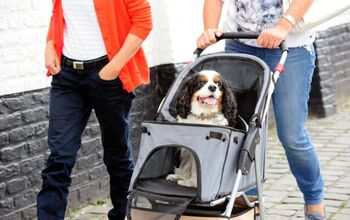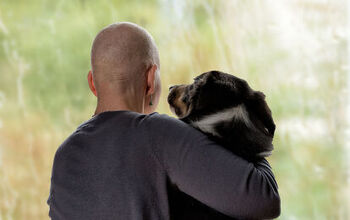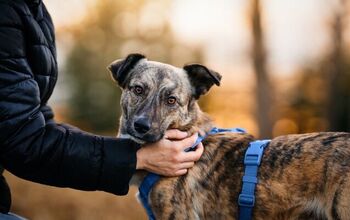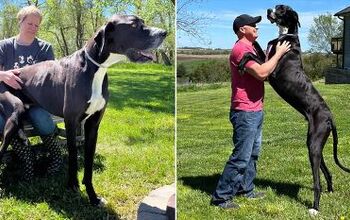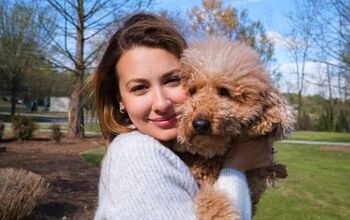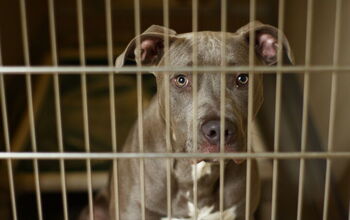Study Shows How Dogs Feel When We Hug Them – And You Won't Like It

Nothing beats snuggling with your pooch – those doggy cuddles are really something special. But do our canine companions enjoy being hugged as much as we love hugging them? A new research study published in the scientific journal “Applied Animal Behaviour Sciences” sheds some light on this topic – with results that will sadden some dog owners.
Elizabeth Ann Walsh, from the Cork Pet Behaviour Centre in Ireland, who was the head scientist behind this study on human-dog communication, examined several videos of people hugging and playing with their dogs, in order to better analyze how dogs would react to our displays of affection.
The results surprised many dog owners. After all, we love to hug our pets, but it seems that our dogs don’t exactly love being hugged. At all. Walsh states that most of the dogs she examined in the videos responded to being hugged by expressing feelings of extreme physical stress and anxiety.
“68% of dogs avoided eye contact and turned their heads. 44% licked their lips or nose and 43% panted, which are both signs of feeling stressed out.” the study points out. “60% of dogs flattened their eyes while being hugged, and 81% blinked, action pups make that expresses high stress levels.”
The study found that in 68% of studied cases, the dogs that were hugged either nipped or bit their person as a last resort or a warning when they felt unsafe being hugged. Many dog lovers found these results sad, but they are nonetheless important in understanding dog behavior better.
These results tell us that if we misinterpret a dog’s reaction to being hugged, it can be harmful to both owners and their dogs. Researchers emphasize that there can be considerable consequences to reading your pet’s stress levels wrong, including “feelings of discomfort, anxiety, fear, distress, and confusion in a dog.”
Elizabeth Walsh further explains that ignoring the discomfort a dog shows can result in a fractured “dog and human bond” along with “welfare issues for the dog and the possibility of a dog escalating to exhibit defensive or agonistic behavior should communication fail”.
“There are many causes for concern as humans tend not to necessarily understand the body language or vocalizations exhibited by dogs when interacting with them,” she stated. After all, the way our doggos communicate with us is very different from our own, but they, like us, still foster a bond and avoid overt displays of aggression.
The research team takes the results of the study as a way to “advocate for increased education for both adults and children in canine communication, context and co-operative ways of respecting agency in human-dog interactions.” Simply put, even if we love giving our dogs hugs, that doesn’t mean they’ll like it – so we should respect their boundaries.

A proud mama to seven dogs and ten cats, Angela spends her days writing for her fellow pet parents and pampering her furballs, all of whom are rescues. When she's not gushing over her adorable cats or playing with her dogs, she can be found curled up with a good fantasy book.
More by Angela Vuckovic



